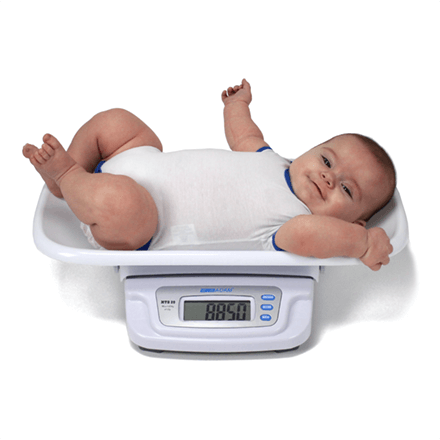
If you’re a professional in the healthcare industry, chances are you’ve had to use a weighing scale or a balance. Whether it’s to weigh a patient, dose medicine or measure a blood bag, weighing equipment is needed everywhere from pediatrician’s offices to gym locker rooms and health supplement stores. With so many applications and so many health scales to choose from, it can be tough finding the right one. Should you use a mechanical or digital scale? Do you need a compact scale or a laboratory balance to weigh your chemicals? This post will describe various medical scales and health scales, their uses, and an assortment of applications for which they can be used.
Types of health and fitness scales
Firstly, health and fitness scales refer to weighing scales that are primarily used for personal weight maintenance. This can refer to a wide variety of products from basic digital scales used for diet and portion control to sophisticated gym, physician and BMI scales. Alongside personal health scales, this term may also refer to scales and balances used by health and medical professionals such as precision and analytical balances used in pharmaceuticals or wheelchair scales that are used to weigh patients with limited mobilty for medical diagnostics. Below, have put together a short list of some of the main types of scales and balances used for health and fitness along with how they are used.
Physician Scales (also called Medical Scales) for BMI calculation
You’ve most likely seen a mechanical or digital physician scale at school, at your doctor’s office, or perhaps in a health club locker room. Mechanical scales are great because they don’t need power to function, making them versatile and practical. They also tend to be cheaper than digital scales. They’re relatively easy to operate, and sturdy enough to withstand a lot of use.
Digital scales are handy because they don’t require you to do any work, providing a fast reading as soon as someone steps on the weighing platform. Most of them can calculate BMI instantly. Digital weighing scales also display results on the screen, and some of them show all the readings at once for added convenience.
Ultrasonic weighing scales take this even further by making the height measurement process even easier. Some physician scales, such as Adam’s MUW, can send the measurements straight to the doctor’s computer, which can come in handy during lengthy diagnosis and note taking.
The choice mostly boils down to convenience. If you or your staff have the time to manually set the weight on the scale and write or input the weight, then a mechanical scale is probably fine. If you have a more complex data entry process or need to spend more time speaking to the patient and less time entering data, then a scale that transfers data directly to your computer is worth the extra cost. Wheels will allow you to easily move the scale around locker rooms, offices or just out of harms way.
Toddler & Baby Scales for monitoring the weight of babies
For pediatricians and concerned parents, there are also toddler and baby scales like the . These baby weighing scales have a lower capacity and are ergonomically designed to ensure the child’s comfort and safety during the weighing process. The MTB can weigh both toddlers and babies, which allows you to buy a single weighing instrument for a wider weight range. This saves money and because you use the same product for both age groups, you or your staff need less training, saving valuable time.

Precision balances for measuring chemicals, medication & blood bags
Whether you need to measure a precise dosage, record deliveries or do tests, you will most likely need a high precision scale to weigh samples of powders or liquids. Analytical balances and precision balances weigh small compounds with very acute precision, while other scales are ideal for measuring liquids or heavier substances thanks to features like dynamic weighing and washdown capabilities. If you weigh ingredients for tonic and herbal supplements, a Dune or a CB compact balance can fit basic weighing needs just fine. An Equinox, or Luna scale might be a better choice if you need higher precision in your measures or if your samples are very small. A scale like the is small and easy to clean and has a higher capacity, which allows for items like blood bags to be weighed while keeping up with sanitary standards. Food weighing scales can help you determine the right amount of food for patients or clients on restricted diets through portion weighing features.
Wheelchair scales for weighing patients with limited mobilty
Platform scales seem like an odd choice for the medical field, but platforms like the PTM wheelchair scales allow wheelchair bound patients to be weighed easily and safely, without fearing scratches or dirt from wheelchairs. Features to look for include wheels and handle for mobility, an anti-slip surface for safety, and optional ramps for easier access.
Selecting the right health scale for you
As always, you should carefully consider your environment and the weighing tasks you must accomplish before picking a scale. Choosing a medical scale goes a step further because you may also have patient comfort to keep in mind. Consider the weight range of the people using the scale or of the items you must weigh, the environment the scale or balance will operate in, and the volume of measurements to accomplish in a given work day. Whether you want the right scale for your fitness facility, school or medical practice, Adam has a wide selection to fit your needs. Feel free to browse, and do not hesitate to contact us with any questions you might have.

